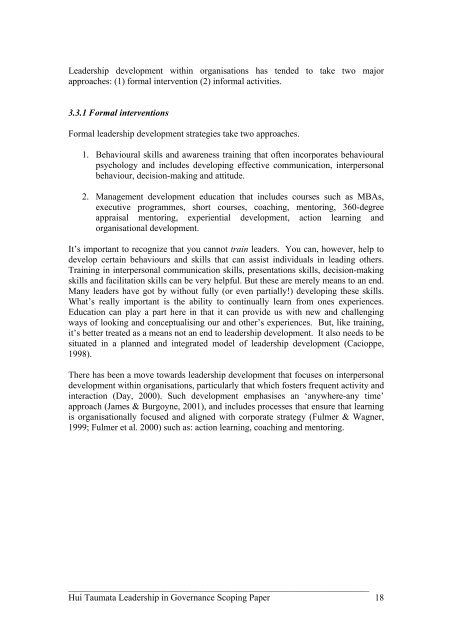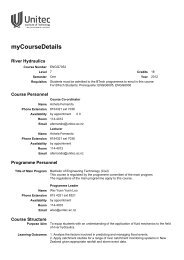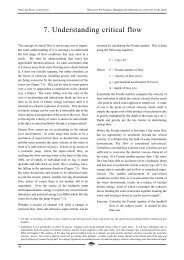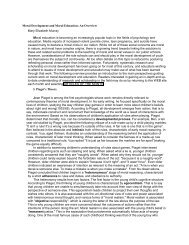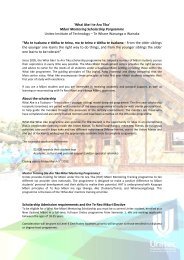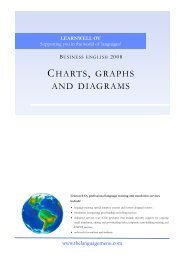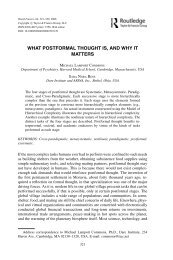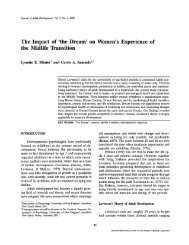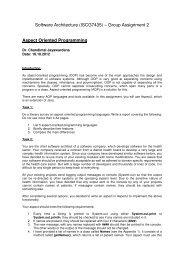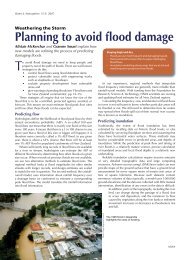Maori Leadership in Governance - Unitec
Maori Leadership in Governance - Unitec
Maori Leadership in Governance - Unitec
You also want an ePaper? Increase the reach of your titles
YUMPU automatically turns print PDFs into web optimized ePapers that Google loves.
<strong>Leadership</strong> development with<strong>in</strong> organisations has tended to take two major<br />
approaches: (1) formal <strong>in</strong>tervention (2) <strong>in</strong>formal activities.<br />
3.3.1 Formal <strong>in</strong>terventions<br />
Formal leadership development strategies take two approaches.<br />
1. Behavioural skills and awareness tra<strong>in</strong><strong>in</strong>g that often <strong>in</strong>corporates behavioural<br />
psychology and <strong>in</strong>cludes develop<strong>in</strong>g effective communication, <strong>in</strong>terpersonal<br />
behaviour, decision-mak<strong>in</strong>g and attitude.<br />
2. Management development education that <strong>in</strong>cludes courses such as MBAs,<br />
executive programmes, short courses, coach<strong>in</strong>g, mentor<strong>in</strong>g, 360-degree<br />
appraisal mentor<strong>in</strong>g, experiential development, action learn<strong>in</strong>g and<br />
organisational development.<br />
It’s important to recognize that you cannot tra<strong>in</strong> leaders. You can, however, help to<br />
develop certa<strong>in</strong> behaviours and skills that can assist <strong>in</strong>dividuals <strong>in</strong> lead<strong>in</strong>g others.<br />
Tra<strong>in</strong><strong>in</strong>g <strong>in</strong> <strong>in</strong>terpersonal communication skills, presentations skills, decision-mak<strong>in</strong>g<br />
skills and facilitation skills can be very helpful. But these are merely means to an end.<br />
Many leaders have got by without fully (or even partially!) develop<strong>in</strong>g these skills.<br />
What’s really important is the ability to cont<strong>in</strong>ually learn from ones experiences.<br />
Education can play a part here <strong>in</strong> that it can provide us with new and challeng<strong>in</strong>g<br />
ways of look<strong>in</strong>g and conceptualis<strong>in</strong>g our and other’s experiences. But, like tra<strong>in</strong><strong>in</strong>g,<br />
it’s better treated as a means not an end to leadership development. It also needs to be<br />
situated <strong>in</strong> a planned and <strong>in</strong>tegrated model of leadership development (Cacioppe,<br />
1998).<br />
There has been a move towards leadership development that focuses on <strong>in</strong>terpersonal<br />
development with<strong>in</strong> organisations, particularly that which fosters frequent activity and<br />
<strong>in</strong>teraction (Day, 2000). Such development emphasises an ‘anywhere-any time’<br />
approach (James & Burgoyne, 2001), and <strong>in</strong>cludes processes that ensure that learn<strong>in</strong>g<br />
is organisationally focused and aligned with corporate strategy (Fulmer & Wagner,<br />
1999; Fulmer et al. 2000) such as: action learn<strong>in</strong>g, coach<strong>in</strong>g and mentor<strong>in</strong>g.<br />
__________________________________________________________________<br />
Hui Taumata <strong>Leadership</strong> <strong>in</strong> <strong>Governance</strong> Scop<strong>in</strong>g Paper 18


